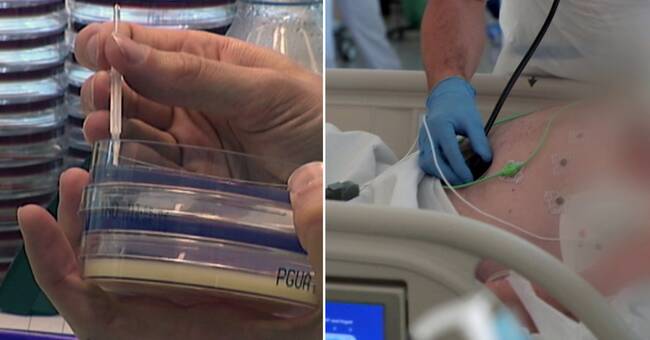In a new study from Hong Kong, researchers compared 100 patients with covid-19 with a healthy control group.
The researchers could see in stool samples that the composition of bacteria in the intestinal flora of covid disease was changed - even several weeks after recovery.
- It was interesting to see that the presence in the intestine of certain bacteria that have known anti-inflammatory effects on the immune system turns out to be lower in covid-19, says Jan Vesterbacka, chief physician at the infection clinic at Karolinska University Hospital who has read the study.
Increased amounts of unhealthy bacteria
It was also possible to see that the sick patients had a higher amount of bacteria which were instead associated with increased inflammation, such as inflammatory bowel disease.
The researchers also compared the intestinal flora of covid patients with their inflammatory markers in the blood that affect how sick you become.
The sicker the patients were in covid-19, the more altered the intestinal flora.
The researchers concluded that the intestinal bacteria may be associated with a more severe disease picture.
- Whether it is a deviating intestinal flora that leads to a more difficult course of the disease, or whether covid-19 leads to the observed differences in the flora, however, is difficult to know, says Jan Vesterbacka.
Contributes with new knowledge
Although the study is small, Jan Vesterbacka thinks that the study is interesting because there are large knowledge gaps around many of the underlying mechanisms that lead to the varying disease picture - from asymptomatic infection to death.
- The study from Hong Kong contributes with new knowledge about how the intestinal flora is changed during illness, and after healing in different courses of covid disease.
This is the first study I know of associating intestinal bacteria with inflammatory markers in blood at covid-19.
Jan Vesterbacka believes that the use of antibiotics in covid-19 should be restrictive and given only in confirmed bacterial complications, as a more pronounced altered intestinal flora could be seen in antibiotic-treated patients after their recovery.
- It will certainly be studied in the future whether modulation of the intestinal flora with, for example, probiotics can have an effect on patients with long-term symptoms, he says.

